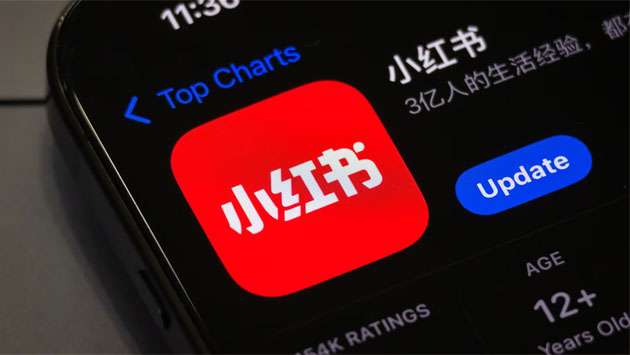New users have flocked to Chinese social media app RedNote just days before a proposed U.S. ban on popular social media app TikTok, with the little-known company rushing to take advantage of the sudden influx as it navigates a delicate path to moderate English-language content.
More than 50,000 U.S. and Chinese users dubbed “TikTok refugees” joined the room during a live chat on RedNote on Monday. Experienced Chinese users, with some confusion, welcomed their American counterparts and exchanged notes with them on topics such as food and youth unemployment. Occasionally, however, the Americans veered into risky territory.
“Is it appropriate to ask how Hong Kong’s laws are changing against China?” one American user asked. A Chinese user replied: “We don’t like to talk about that here.”
Such impromptu cultural exchanges are taking place on RedNote, known in China as Xiaohongshu, and the app climbed to the top of the U.S. download charts this week. Its popularity is due in part to its offering American social media users an alternative to ByteDance-owned TikTok.
RedNote, a venture-backed startup recently valued at $17 billion, lets users create photos, videos and text that document their lives. It is seen as a potential IPO candidate in China. In recent years, it has become a de facto search engine for more than 300 million users looking for travel tips, anti-aging creams and restaurant recommendations.
In two days, Xiaohongshu added more than 700,000 new users, a person close to the company said. Xiaohongshu did not immediately respond to a request for comment. RedNote downloads in the United States this week were up more than 200% year-on-year and 194% from the previous week, according to estimates from app data research firm Sensor Tower.
Lemon8, another social media app owned by ByteDance, which was the second most popular free app on Apple’s App Store list on Tuesday, saw a similar surge last month, with downloads up about 190% to 3.4 million in December. The app also saw a similar increase on Google’s Play Store.
The influx seemed to catch RedNote by surprise, with two sources familiar with the company saying it was scrambling to find ways to moderate English-language content and build English-Chinese translation tools. TikTok users posted videos of themselves speaking in basic Mandarin to more fully interact with RedNote users.
RedNote maintains only one version of its app, rather than splitting it into foreign and domestic apps — a rarity among Chinese social apps that are subject to local moderation rules. ByteDance publishes two versions of its short-form video app: Duoyin in China and TikTok in the rest of the world.
RedNote is eager to attract the attention it needs because executives see it as a potential way to achieve global popularity similar to TikTok. Shares of several Chinese-listed companies that do business with RedNote, such as Hangzhou Onechance Tech Corp., rose 20% on Tuesday and have been rising each day.
The surge in U.S. users comes ahead of a Jan. 19 deadline for ByteDance to sell TikTok or face a U.S. ban on national security grounds. TikTok currently has about 170 million users in the United States, about half the country’s population, and is hugely popular with young people and advertisers looking to reach them.
“Americans using RedNote feel like a lazy middle finger to the U.S. government for its over-involvement in business and privacy issues,” said Stella Kittrell, 29, a content creator based in Baltimore, Maryland. She joined RedNote in hopes of forging further collaborations with Chinese companies, and she said it has been helpful. Some users said they joined the platform to find alternatives to Meta-owned Facebook and Instagram and Elon Musk’s X. Some expressed skepticism that they could rebuild their TikTok following on those apps.
“It’s not the same: Instagram, X or any other app,” said Brian Atabansi, 29, a business analyst and content creator in San Diego, Calif. “Mainly because of how organic the community building is on TikTok,” he said.



